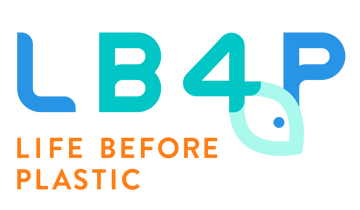How to become a Sustainable Consumer - The 3 Pillars of Sustainability
With companies publishing their sustainability goals, television shows highlighting unsustainable environmental impacts, and products claiming they’re sustainable popping up all over the place, have you ever stopped to consider what ‘sustainability’ even means?
Unfortunately, it’s not straightforward.
With different definitions and perspectives on what sustainability is, it can be complicated. One thing worth getting your head around is the most widely accepted model for sustainability: the three pillars of sustainability. So what am I talking about?
The following three pillars together provide one explanation for ‘sustainability’

Social sustainability
For a sustainable planet, we should consider the role of society and whether our societies are sustainable. Practically, this means we should contemplate human rights, workers rights, justice, diversity and democracy.
Economic sustainability
Economic sustainability necessitates a different perspective to sustainability, the ability to generate wealth. For a sustainable economy, we should reflect upon whether economic growth is achievable, and try to ensure a distribution of wealth.
Environmental sustainability
This is the one we’re most familiar with. Environmental sustainability is the attempt to ensure that the Earth, and it’s plants and animals, are protected for us and for future generations.
What do these three pillars mean for us as consumers trying to be sustainable?
We need to think about the impact of our choices. There are different ways to consider each pillar and here are just a few sustainable considerations to get you started.
Packaging
Buying plastic-free can dramatically change the impact you’re having on environmental sustainability both on land and in the ocean. Check out our sustainable packaging options here.
Food waste
Cut down on your food waste. Reducing the amount of food we eat by using all the food we buy will not only help the environment, but likely social issues such as food poverty.
Shop second-hand
By buying second-hand we can help the environment by reducing the production of new products, help society by supporting second-hand charitable shops who in turn support the disadvantaged, and the economy, by providing business for these shops.
Shop in local small businesses
Small businesses help the economy to grow in a sustainable way. By shopping locally we can further reduce our environmental impact by lowering our carbon footprint.
Quality over price
Often we can be tempted to buy something because it’s cheap, but we should stop and think whether the price of an item might be linked to the values of the company we are buying from and the quality of the product. By spending that little bit more, we could contribute to better workers rights and the use of ethical materials, in addition to supporting the economy.
Check certifications and eco-labels
When buying products, check for the certifications and eco-labels that are important to you, such as FSC, MSC, Fair-trade, Vegan etc. These labels help the sustainability of society and the environment, by ensuring certified products are produced humanely or by only using sustainable materials.
All three pillars are important, and there’s more than one-way to be a sustainable consumer. We’d love to hear which pillars you consider when you are looking to buy - let us know in the comments below.
Written by Life Before Plastik’s Charlie. First published on the Georganics blog.

